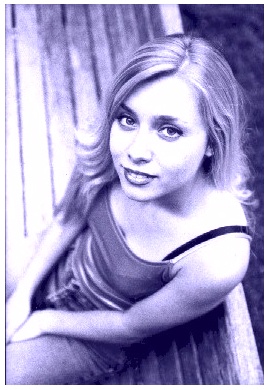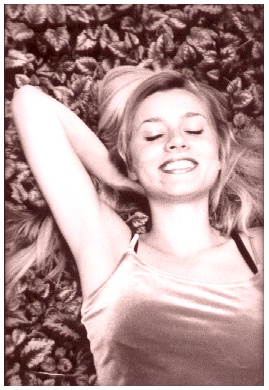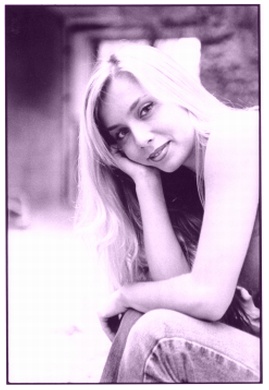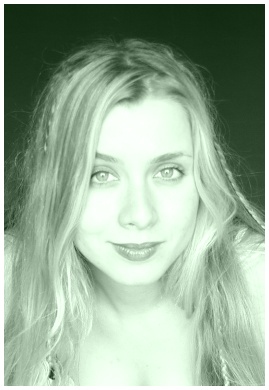|


Boston Beats:
State your name, age, and occupation for the record please.
Danielle Miraglia: Name,
Danielle Miraglia. Age 26. Occupation: I guess itís ďentertainment.Ē
BB: How did you get into music? When
did you learn to play?
DM:
I started playing guitar when I was thirteen. I wrote a few songs in
high school, just joke songs, that kind of stuff. Then I went to
college and didnít play very much at that point. I went to Emerson for
creative writing, and I got out and realized that thatís not what I
wanted to do. I wanted to write but I didnít want to be a novelist, I
guess itís too much work. So I just ended up writing a lot of songs,
and decided to do an open mic. It happened from there, and then I got
addicted to it. Couldnít stop.
SONGWRITING &
INFLUENCES
BB: When did you write your first song?
DM: I
wrote songs when I was a kid, just joke songs and things like that. But
the first song I wrote that I actually played on a stage that I wrote
was probably 20 or 21, the first one I actually ever performed. Itís
not one that I perform now.
BB: Tell me about your songwriting style. How does a new song usually
come about?
DM:
I used to write the lyrics first and then add the music, but lately Iíve
been doing them both at the same time. That seems to be working a
little better. Sometimes Iíll have a music part that Iím working on and
then start writing lyrics and find some that fit.
BB: What are your musical influences?
DM:
Itís always been mostly classic rock stuff. The Beatles. Bob Dylan.
Joni Mitchell. Paul Simon. Prince. Everything influences me. Itís
hard to say. I could listen to something new tomorrow and end up
writing a song if it inspired me.
BB: What are some of your favorite albums?
DM:
Albums that will always be classics to me include Joni Mitchell ďBlue,Ē
Bob Dylan ďBlonde on Blonde,Ē Rolling Stones ďLet it Bleed,Ē Beatles
ďRevolver,Ē Janis Joplin Box Set, the whole thing. Those are the ones
that come to mind, ones that I could never do without. Oh, and Prince,
ďSign of the Times.Ē
BB: How would you describe your own style?
DM: I
guess itís a blend of blues and country and rock.

RECORDING
BB: What has been your experience recording music?
DM:
My last CD was with a friend Dave Franz at a studio called ďUnderground
SunĒ in Brighton. He did that one. Heís great. Iím actually going in
the studio again pretty soon. Itís the first time Iíve gone back since
this last one. Itís always just a matter of getting warmed up to it
again. Itís kind of nerve-racking in a way because you know youíre
being recorded, and you feel like it has to be perfect, and you have to
kinda get yourself out of that mindset and try to not be that way.
BB: Do you prefer the studio or playing out?
DM:
Performing, definitely.
PLAYING OUT
BB: What makes a good show?
DM:
A packed room of people, completely quiet and listening. Thereís an
energy you get, sometimes you donít get the energy and sometimes you
do. And you know when youíre getting the energy; itís an exchange of
energy. Itís what makes you want to perform, to feel the energy coming
back to you.
BB: Whatís your best show so far?
DM:
Opening for Patti Larkin at the Bull Run in Shirley. That was an
awesome experience.
BB: What equipment do you use?
DM:
I have a J45 Gibson acoustic guitar, thatís my favorite guitar, my
baby. Right now Iím using a little crate, because itís easy and
portable. I use a JBL speaker and a Barringer mixer for the bigger
rooms, the bar gigs.
BB: Any pre- or post-show rituals?
DM:
I get really drunk! No, Iím kidding. Iím always late, so just getting
there on time.
BB: Do you do any interesting covers?
DM:
I do a cover of Prince ďStarfish and Coffee.Ē I do a bunch of covers.
It depends on where Iím playing. If Iím playing in a bar for three or
four hours, then Iíll have to draw on a lot of covers, but I refuse to
do covers that I donít like.
BB: Tell me about your audience. What are your fans like?
DM:
That would be hard to say. Iíve met such a mix of people. The people
who are my musical friends now are all people Iíve met from playing open
mics, and just getting into the scene. Some of my best friends Iíve met
through music. And also Iíve met great people just being at gigs.
THE BOSTON
SCENE
BB: What are some of your favorite places to play?
DM:
I love the Kendall Cafť, but theyíre closing it, itís so sad. That was
one of my favorites. I love playing the Burren on Sunday nights. Thatís
a regular gig.
BB: Who are some of your favorite people to play with?
DM:
Well, Tom Bianchi, he plays bass with me. Gotta name Tom. This
guy John ďJohnny BravoĒ Cleaver. He looks just like the cartoon
character Johnny Bravo. And Chris Harris. Those are the guys Iím
playing with now.
BB: What are your favorite local bands and artists?
DM:
Thereíre so many. Tom Bianchi, Kevin So, Lisa Bastoni, Sarah Woolf,
Kelly DiKiannon, Jason Gardner, Kyle Shiver, Martin Anderson, Blue
Horizon, Seth Horan, Melissa Morris, Shiner.Jones, Liz Debiase, Amusia,
Rob Roscigno, Christie Leigh, Cactus Highway, Secret Shoes. Oh, and
Ryan Monbleau, heís another one, heís amazing. I donít want to miss
anybody, but thatís a few.
BB: Have you played much in other cities besides Boston?
DM:
Yeah, Iím starting to do it a little bit more. Iíve played all over
Massachusetts, but Iím touring in October, going down the coast. North
Carolina and back, playing the DC area, Virginia.
BB: How would you compare the music scene in Boston to other cities
youíve played in?
DM:
Theyíre a lot of places to play here, but the audiences are a little
tougher. I donít know why. It seems like itís harder to get them to
pay attention here. Boston is the best place to start because itís a
tough place to do it. But thereíre also tons of opportunities to play.
Then you go to other places and say, ďOh wow, people are listening to
me.Ē
 IN
CLOSING IN
CLOSING
BB: If you could play on stage with anyone alive, who would it be?
DM:
Oh, Prince. Even though I would be completely intimidated by him, and
probably just faint. And heís my height, so it would work. All his
dancers are really short, because they canít be taller than him or it
would just look funny. I donít have to play anything, Iíll just roll
around on the stage. Iíll just hold onto his leg. You can put that in
print if you want.
BB: If you could be in another
profession other than your own, what would it be?
DM:
A writer for Saturday Night Live.
BB: What would be your least favorite idea for another profession?
DM: Working in an office in a cubicle,
doing what I was doing before. I was working at the help desk, doing IT
work, which wasnít horrible, but I was out of my element. I had a bad
attitude. And I used to surf the net all day. And they promoted me it
was weird, because I had a knack for Microsoft Office. They promoted me
to help desk trainer I had some title I couldnít even pronounce. I
would be putting together help desk manuals, and then Iíd write a song
about how miserable I was. Then Iíd tell someone to re-boot their
computer, which is usually the solution to every problem. I could go on
and on. And then before that I was a secretary, which I really hated a
lot. Any office job. I would rather do anything than work in an office
again.
BB:
What do you hope people will get out of your music?
DM: This is
a tough one. I donít know if this comes across in my music; Iím not
claiming that it necessarily comes across, but what I would hope to convey
is basically not to waste your life being miserable. And if youíre
unhappy in a situation then change that situation and do something else if
thereís any possible way. Find another way.
BB: Any advice to hopeful musicians?
DM:
Keep listening to other people and learning from everything you hear.
Try to find a balance between being confident and being humble. And
knowing that youíre not the best, but knowing youíre not the worst.
Knowing that youíre constantly improving and that whatever level youíre
at, thereís always more to learn. And to never think that youíve
reached the peak, and to never think that you canít get to that point
either. To constantly be striving for it. Listen to other
performers, and learn everything that you possibly can.

To learn more
about Danielle Miraglia, visit her website
at
http://www.daniellem.com
*Pictures
courtesy of
http://www.daniellem.com
|